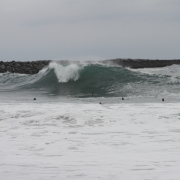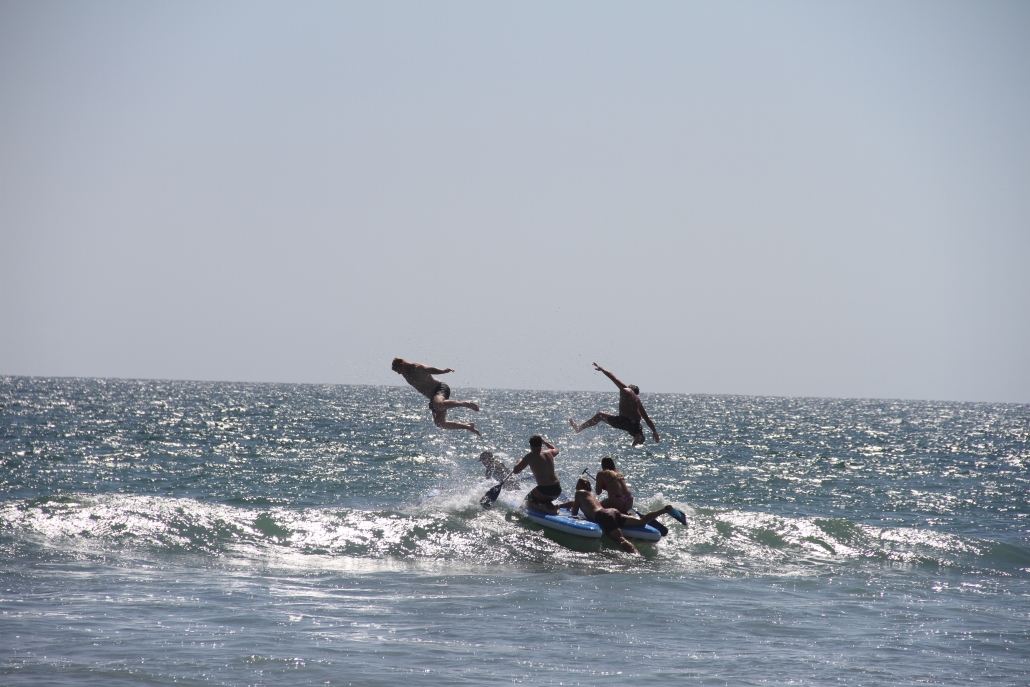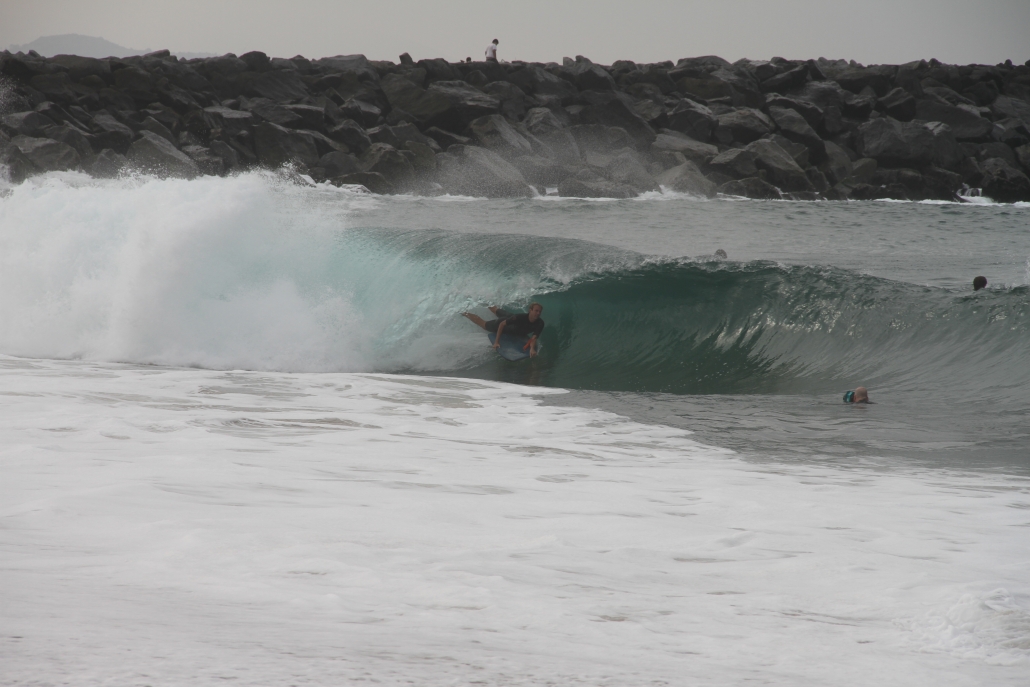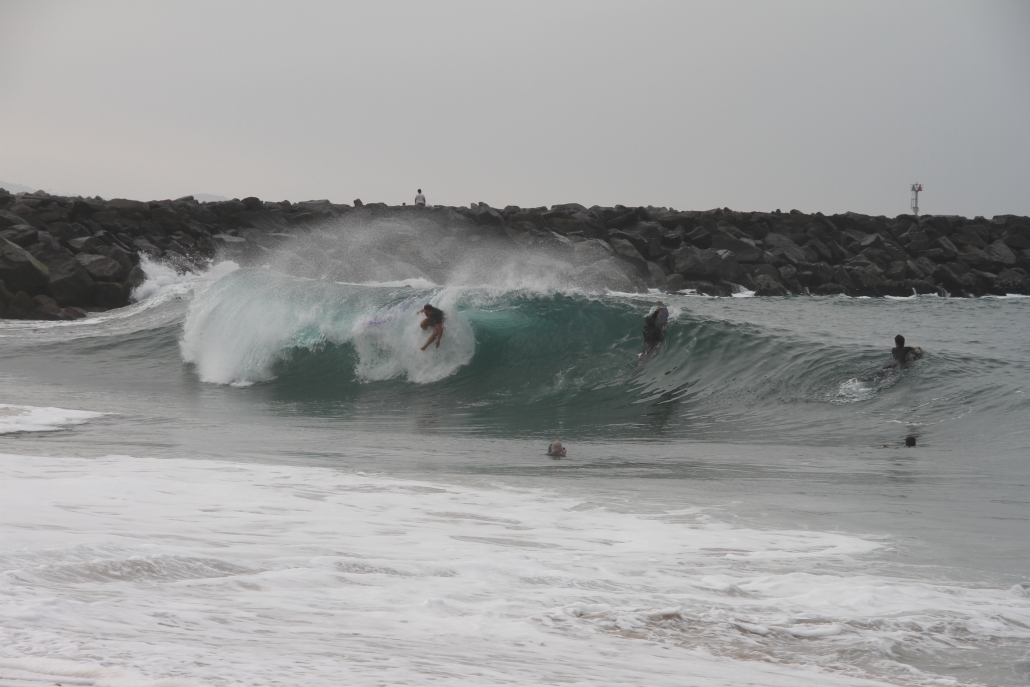Can You Get COVID-19 from Surfing?
I confess: Over the past several weeks, I’ve been surfing. What was a few times has now returned to my routine. It had been over two months since I got in the water and the first time back felt weird. It felt wrong and odd, I felt like some kind of social recluse committing a crime, but giggling on the way in all the same.
I went to River Jetties in Newport and as I dipped my toe in the luke-warm ocean, a sense of relief and paranoia struck me all at once.
If this feeling could be put into words, it might look something like this:
Ahhhhhahwawwwweeeeeummmmmhmm
Can you get coronavirus from surfing? It lingered in my mind, distracted me from catching waves as I drifted towards the rivermouth. My friend’s sarcastic line floated into my mind: “Where the poo meets the sea is where I surf”—referring to River.
The Surfrider Foundation wrote a comprehensive report and references several studies, both published and unpublished, that cite contradicting information—one German study says you can’t pass it on through poop and another Chinese study says you can.
Is it viable once in the salt? It’s been said that it can be passed on through freshwater, like lakes and rivers. But studies don’t have conclusions about saltwater. Also, when waves break, it creates an aerosol affect, which translates into tiny water droplets flying through the air and into your smiling mug, according to some speculations.
But that’s speculative.
From Surfrider:
At this point, the research community does not know if people can contract the COVID-19 virus from exposure to feces in recreational waters but the overall consensus is that it might be possible.
MRSA, e.coli and all those other fun germies can be caught through dirty water, so it sounds like we treat this as we would a sewage spill—don’t surf dirty water and stay away from people as best as you can.
But, tell that to 50 of your best buddies vying for the peak at Lowers on a Saturday morning.





